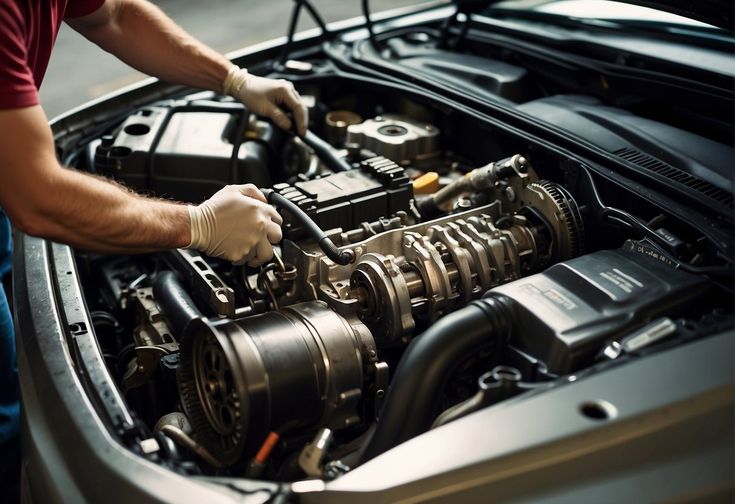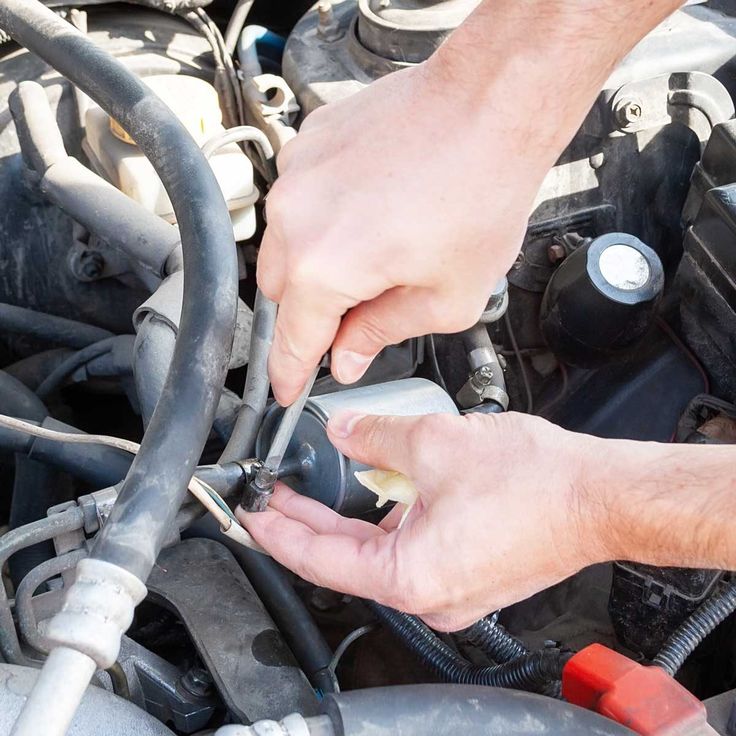Repair instructions
5 Critical Car Maintenance Items Most People Forget
Summary: Many drivers forget key maintenance tasks such as timing belt replacement, valve adjustments, and fuel filter changes, leading to potential engine damage and costly repairs. Neglecting these critical services can result in serious vehicle problems or even leave your car undrivable. Always adhere to your car’s maintenance schedule to avoid unexpected breakdowns.
Common Car Maintenance Items People Tend to Forget
As a car owner, you’re likely familiar with the importance of regular oil changes and cabin filter replacements. However, there are several other maintenance tasks that often slip under the radar, but skipping them can lead to costly breakdowns and repairs.
1. Timing Belt Replacement
While newer cars often feature timing chains, many vehicles still rely on timing belts. Unlike other belts in the car, the timing belt plays a vital role in synchronizing the camshaft and crankshaft, ensuring the valves open and close at the right time during the engine cycle.
If the timing belt isn’t replaced as recommended by the manufacturer, it can stretch, wear out, or even break, causing catastrophic engine damage. In interference engines, a broken timing belt can cause the valves to collide with the pistons, resulting in expensive repairs. Always check your car’s manual and replace the timing belt according to the manufacturer’s recommended interval.

2. Valve Adjustment
Most modern vehicles have hydraulic lifters, which automatically adjust valve clearance as the engine operates. However, some models, particularly older ones like certain Honda and Subaru vehicles, still require manual valve adjustments to maintain proper engine function.
If the valve clearance is too tight, it can lead to poor compression and potential engine damage, while too much clearance can cause excessive engine noise and wear. Regularly check your vehicle’s service schedule to ensure that valve clearance is adjusted when needed.
3. Fluid Exchanges Beyond Engine Oil
Engine oil isn’t the only fluid that requires regular attention. Many car owners forget to replace transmission fluid, which is essential for smooth shifting and preventing transmission failure. Additionally, if you drive a vehicle with rear-wheel or all-wheel drive, fluids in the rear differential, transfer case, and front differential also need to be replaced periodically.
Coolant should also be replaced to avoid corrosion and engine overheating. In some vehicles, power steering and brake fluid should also be changed at specified intervals. Be sure to consult your vehicle’s maintenance schedule to determine the appropriate fluid exchange intervals.

4. Fuel Filter Replacement
While many newer vehicles have a non-serviceable, in-tank fuel filter, older models still use an external, serviceable filter. Over time, a clogged fuel filter can cause rough idling, poor acceleration, and in some cases, even prevent your car from starting. If your vehicle has a replaceable fuel filter, ensure it’s changed according to the maintenance schedule to keep the fuel system running smoothly.

5. Spark Plug Replacement
Spark plugs are essential for efficient engine performance. While some modern spark plugs are designed to last up to 100,000 miles, they still need to be replaced regularly to prevent issues like engine misfires, poor fuel economy, and damage to the catalytic converter. A worn spark plug can also cause further damage by breaking off and falling into the engine, which could lead to expensive repairs.

Stick to the Manufacturer’s Maintenance Schedule
The best way to keep your car running smoothly is to follow the manufacturer’s recommended maintenance schedule. Your owner’s manual provides a detailed list of services, including when and how to perform them. Following this schedule ensures you’re staying on top of necessary repairs and preventing major issues down the road.
Order Parts and Stay Ahead of Maintenance
If your car is due for a timing belt replacement, valve adjustment, or any other critical service, order the necessary parts ahead of time to avoid delays. Ensuring that your vehicle gets the right maintenance on time can save you from costly repairs and keep your engine running smoothly for years to come.
